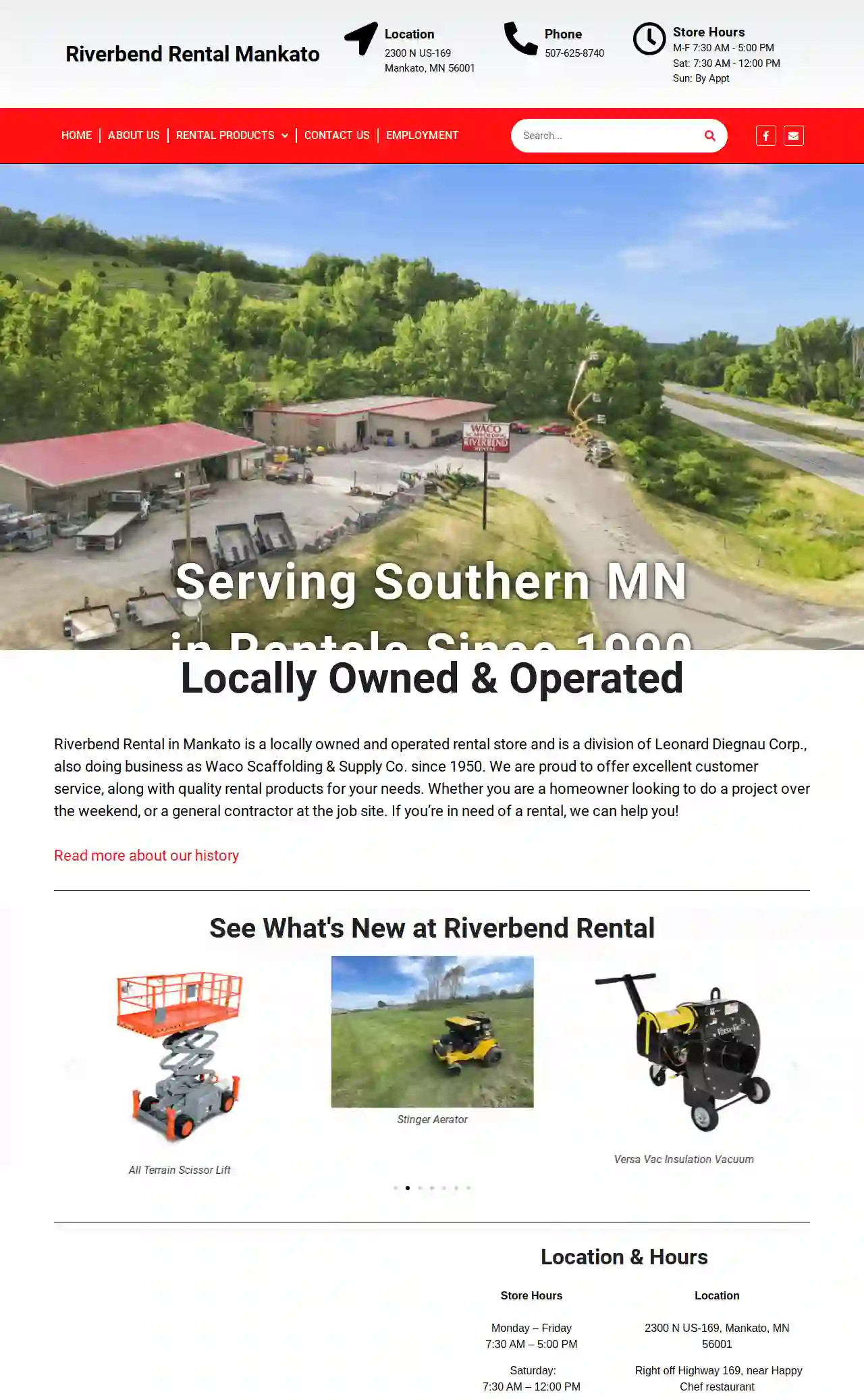Scaffolding Companies Sauk Rapids
Find Scaffolding Builders in Sauk Rapids
Receive 3 FREE Scaffolding Companies quotes for your project today! Compare profiles, reviews, accreditations, portfolio, etc... and choose the best service.

Amiga Scaffolding Ltd
4.940 reviewsHoo, 172 Knights Road, Rochester, ME3 9JN, USAmiga Scaffolding Ltd is a reputable company with over 20 years of experience in the scaffold industry. We provide our services to homeowners and commercial clients in Kent, Essex, and London. Our team is fully qualified, experienced, and dedicated to providing a cost-effective, safe, and transparent service to all our clients. We adhere to the latest guidance TG20:21 and SG4:15, ensuring that all scaffolds are erected to industry standards. We are fully insured and aim to be as competitive on price as possible. Our process involves gathering information, arranging an on-site visit, and providing a fixed price quote within 24 hours. We offer a 24-hour emergency call-out service and are there every step of the way.
- Services
- Why Us?
- Accreditations
- Our Team
- Testimonials
- Gallery
Get Quote
Waco Scaffolding Riverbend Rentals
4.846 reviews2300 N US-169, Mankato, 56001, USRiverbend Rental in Mankato is a locally owned and operated rental store and is a division of Leonard Diegnau Corp., also doing business as Waco Scaffolding & Supply Co. since 1950. We are proud to offer excellent customer service, along with quality rental products for your needs. Whether you are a homeowner looking to do a project over the weekend, or a general contractor at the job site. If you’re in need of a rental, we can help you!
- Services
- Why Us?
- Gallery
Get Quote- In
Infinity Scaffold Inc
4.718 reviewsMinneapolis, US- Services
- Why Us?
Get Quote - Br
BrandSafway Industries Minneapolis
55 reviewsMinneapolis, US- Services
- Why Us?
Get Quote - Re
Reddy Rents Minneapolis
4.5100 reviewsMinneapolis, US- Services
- Why Us?
Get Quote - Fa
Farrell Equipment & Supply - New Hope
4.220 reviewsMinneapolis, US- Services
- Why Us?
Get Quote - Ha
Harbor Freight Tools
4.4987 reviewsMinneapolis, US- Services
- Why Us?
Get Quote - Ad
Advance Shoring Company
4.723 reviewsMinneapolis, US- Services
- Why Us?
Get Quote - Sc
Scaffold Service, Inc
4.628 reviewsMinneapolis, US- Services
- Why Us?
Get Quote - Re
Reddy Rents
4.344 reviewsMinneapolis, US- Services
- Why Us?
Get Quote
Over 2,353+ Scaffolding Companies registered
Our scaffolding companies operate in Sauk Rapids & surrounding areas!
ScaffoldingHQ has curated and vetted Top Scaffolding Contractors arround Sauk Rapids. Find a reliable business today.
Frequently Asked Questions About Scaffolding Companies
- A larger, more complex structure typically used for accessing multiple levels of a building.
- Offers greater height and versatility.
- Often used for construction, renovation, and maintenance.
- Smaller, portable platforms usually used for tasks at a single level.
- Commonly used for painting, plastering, or light repairs.
- Can be rolling or stationary.
- Licensing and Insurance: Verify their licenses are current and that they have adequate insurance coverage.
- Experience: Choose a company with a history of successfully completing similar projects. Ask for references and check their portfolio.
- Safety Record: Inquire about their safety practices and accident history. A strong safety culture is essential.
- Professionalism: Observe their communication, responsiveness, and attention to detail. A reputable company will be organized and transparent.
- Reviews and Testimonials: Read online reviews and feedback from previous clients to assess their reputation.
- Industry Affiliations: Membership in professional organizations like the NASC (National Access & Scaffolding Confederation) indicates a commitment to industry standards.
What is the difference between scaffolding and staging?
Scaffolding:
What is a scaffolding hoist?
How do I know if a scaffolding company is reputable?
Can I erect scaffolding myself?
What is the difference between scaffolding and staging?
Scaffolding:
- A larger, more complex structure typically used for accessing multiple levels of a building.
- Offers greater height and versatility.
- Often used for construction, renovation, and maintenance.
- Smaller, portable platforms usually used for tasks at a single level.
- Commonly used for painting, plastering, or light repairs.
- Can be rolling or stationary.
What is a scaffolding hoist?
How do I know if a scaffolding company is reputable?
- Licensing and Insurance: Verify their licenses are current and that they have adequate insurance coverage.
- Experience: Choose a company with a history of successfully completing similar projects. Ask for references and check their portfolio.
- Safety Record: Inquire about their safety practices and accident history. A strong safety culture is essential.
- Professionalism: Observe their communication, responsiveness, and attention to detail. A reputable company will be organized and transparent.
- Reviews and Testimonials: Read online reviews and feedback from previous clients to assess their reputation.
- Industry Affiliations: Membership in professional organizations like the NASC (National Access & Scaffolding Confederation) indicates a commitment to industry standards.